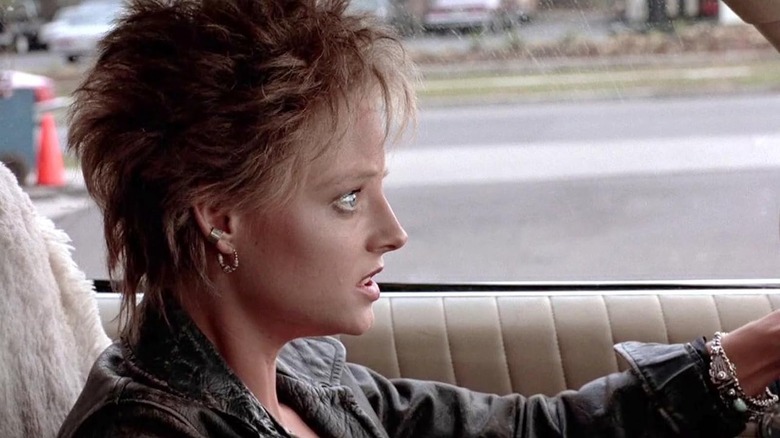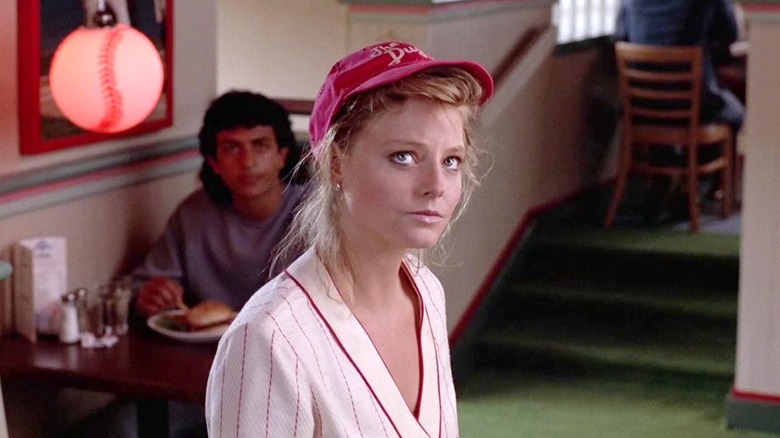Jodie Foster Refused A Director Note For Her Oscar-Winning Role In The Accused
Jonathan Kaplan's "The Accused," a searing 1988 drama about a woman seeking justice after being gang raped in a roadside bar, was nearly a very different movie. Jodie Foster's character, Sarah Tobias, whose sexual assault is cheered on by numerous bar patrons, was initially intended to be a much more sympathetic figure. But Foster convinced Kaplan (the late director of the juvenile delinquent classic and Matt Dillon's first movie, "Over the Edge"), along with the producing team of Stanley Jaffe and Sherry Lansing, that Sarah should be less likable. The filmmakers relented, and Foster won her first Best Actress Oscar that year.
Foster's decision didn't just pay off awards-wise, it also added a layer of complexity to a standard-issue legal drama. Had Sarah been a sweet-natured woman who gets brutalized by a gang of drunken monsters, her arc would've been close to a flat line. By making Sarah a bit of a hellraiser who's made questionable decisions throughout her life (and flirts with her attackers prior to the assault), the film confronted the infuriatingly persistent rationale that a woman can be complicit in her sexual assault by, in a buffoon's parlance, asking for it.
In a 2005 interview with Total Film, Foster explained why she essentially overruled Kaplan's notes on her performance:
"I felt I knew who that character was, and my body just couldn't play it any other way, my voice couldn't play it any other way. At the time, I was really frustrated by that. I thought, 'You need to quit because you can't give people what they want. You should be able to change your performance when somebody says, 'I want it this way.” And I just couldn't. Eventually, I realized that was a good thing, but at the time I was ready to pack it in."
Jodie Foster nearly quit The Accused
Thank god she didn't quit the movie; it's hard to imagine anyone walking that emotional tightrope as deftly as Foster did. Her take on Sarah challenges the viewer's sympathies at times; obviously, we ache for her trauma and want her assailants (one of whom continues to bully her after the fact) brought to justice, but we don't always enjoy being in her presence. Interestingly, Foster felt the same way. As she told Total Film:
"[W]hen I first saw 'The Accused' I thought, "This is just awful." Not the movie, but my performance in it. I felt like, 'I really missed the boat — she's brash and loud and ... not polite!' [Laughs] I couldn't relate to her. Now, I think that's very interesting that somebody from my background would judge somebody like her."
Again, this is the element that elevates the movie above its hoary genre trappings. It's why "The Accused" has lost none of its power and remains a (very difficult) must-see to this day. And if you need to chase that film with a more capable, put-together Foster, there's always "Silence of the Lambs."

